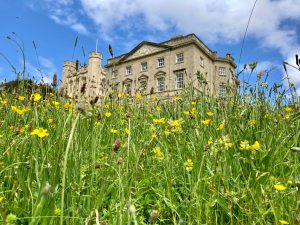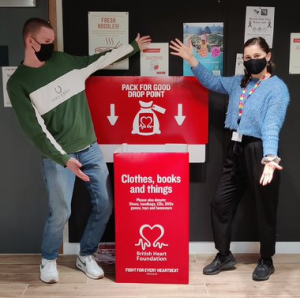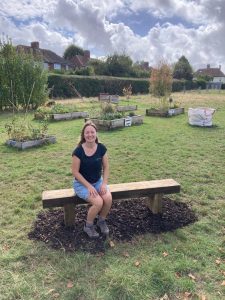
This month, our ‘Be the Change’ campaign theme is ‘action’. We’re encouraging staff and students to challenge themselves to make a positive contribution by volunteering, recycling, growing plants, composting and raising awareness. All action, however big or small, can change the future of the world we live in.
We caught up with Sarah Rogers, Project Coordinator within the University’s Public Engagement team, to find out about her inspiring journey to setup a community garden in her local community.
“My friend Becca and I met at a playgroup, and we kept discussing how there very little free provision of activities in the local area to take our children to. We decided to attend a large local event and asked people what they wanted and where – so we knew a community garden with regular activities for children and old people would be popular. Then we supported each other to take it forwards,” Sarah explained.
“We started Hillfields Community Garden right in the middle of the pandemic. The focus is improving local nature, connecting people to reduce isolation and supporting people in poverty with free healthy meals. We had some funding from a local organisation that gave us an unconditional grant, which covered raised beds, plants and tools. We set about flyering and put up posters, and attracted other likeminded people. For a long time all we had to organise ourselves was a WhatsApp group!”
The area of Hillfields, Fishponds, was built around 1920 and was one of first council estates in the UK and the world designed as part of the ‘Homes for Heroes’ initiatives.
“The whole ethos was around ‘dig for victory’, so every home was designed with a substantial garden so everyone had an allotment,” Sarah described. “Over the course of a century, I think people have forgotten how to grow – we’ve got Monty Don and RHS that replaced the ‘everyday’ style gardening. I reject this – I’m an everyday, indiscriminate gardener – all plants get same attention and I see what happens! The thing I like most about gardening is it starts afresh every year, you can learn and try again.”
In 2021 we held 22 events and groups which were attended by 580 people, last year we expanded to three community events per year, four regular monthly groups, and 25 volunteers, 27 activities which were attended by 1,200 people! We are also now an Award Winning Garden and have been featured in local radio, by Bristol City Council and in a national magazine.
Sarah enjoys bridging her work at the University with her work in the community, and believes they compliment each other well.
“Last year I did the Female Leadership Initiative (FLi) with UoB Staff Development and it was one of the best things I’ve done in terms of supporting me within my leadership at work and outside work. The initiative has also benefited from working with the University in other ways, for example last year we linked up with Engaged Learning and three Business students [Emeli, Holly and Maria] who created a Business Plan . They recommended we become a charitable incorporated organisation, which we are now applying for.
I’d encourage staff to use their volunteering day to work with grassroots projects like ours, not only “getting out there” but using their work-based skills to support local initiatives.”
There are plenty of ways to find suitable volunteering opportunities. On Wednesday 8 February the SU is hosting a volunteering fair. You could also browse VOSCUR for opportunities. You should then have a conversation with your manager to agree a date.
“Consider your volunteer day a trial to see if you like something and could continue to volunteer longer term. My top tip would be to look locally – what’s on your doorstep? Where you can invest time a few streets away? Passion but no skill is also ok, you’ll learn on the job.”
For those looking to start something new, Sarah advises finding like-minded people to work with you and looking into the support available for startups through VOSCUR Voscur | Supporting Voluntary Action.
“Go and find your tribe – no one can do everything by themselves. It might mean putting an ad in a local shop or speaking to people at the school gate. It’s also important to set boundaries and agree the timescales you’ll work on something for as there is so much need. Look after yourself too, don’t burnout!”
We wrapped up our conversation by discussing how rewarding working voluntarily can be both mentally and physically.
“The biggest thing for me is the example I’m setting for my daughter, and how she see’s the work I’m doing,” Sarah ended.
You can find out more about Sarah and her community work on her People Power Bristol video. This video will be shown with other multimedia stories about social action at an event at Bristol City Hall on Saturday 25 March 2023.
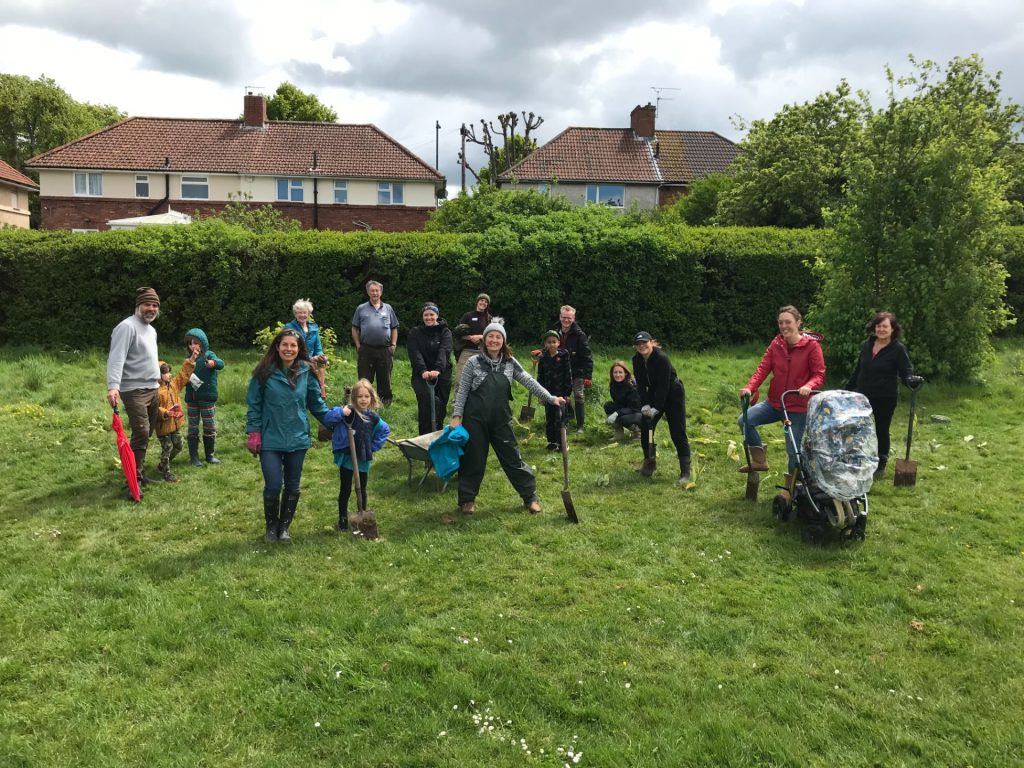

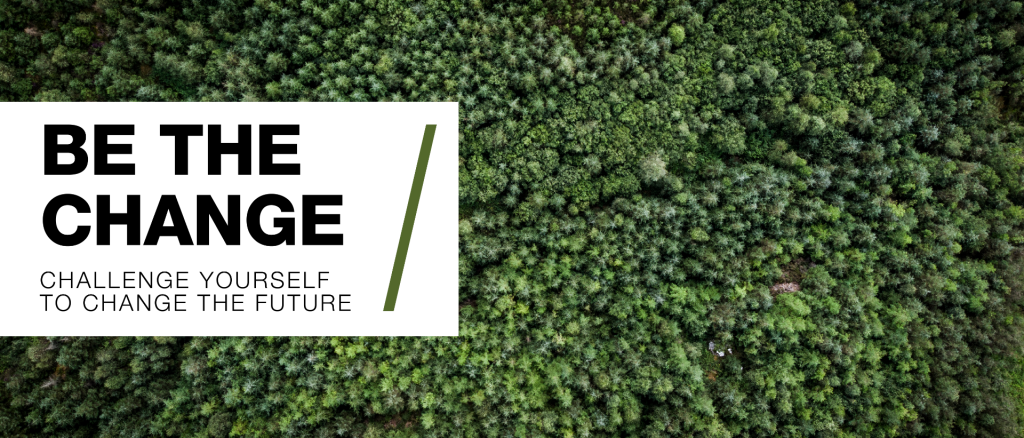
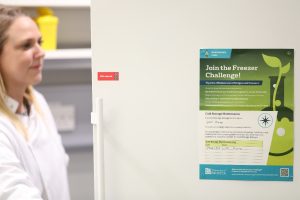 STEM buildings are responsible for 40% of the University’s energy consumption, and the numerous freezers in labs contribute to this figure. A single ultra-low temperature freezer (ULT) can use as much energy as an average household each day. Ways to reduce the energy consumption of freezers that were encouraged by the challenge include defrosting freezers, vacuuming freezer coils, creating a cold storage inventory, space sharing, using room temperature storage whenever possible and adjusting ULT temperatures from -80°C to -70°C.
STEM buildings are responsible for 40% of the University’s energy consumption, and the numerous freezers in labs contribute to this figure. A single ultra-low temperature freezer (ULT) can use as much energy as an average household each day. Ways to reduce the energy consumption of freezers that were encouraged by the challenge include defrosting freezers, vacuuming freezer coils, creating a cold storage inventory, space sharing, using room temperature storage whenever possible and adjusting ULT temperatures from -80°C to -70°C.
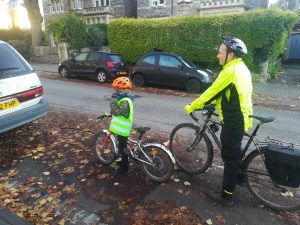
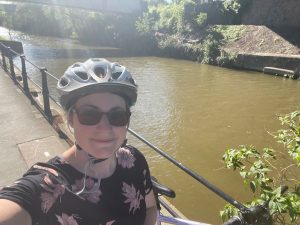 “I was finding it increasingly stressful and time-consuming driving into work, plus there is limited parking on campus, so it could be a challenge to get a space.
“I was finding it increasingly stressful and time-consuming driving into work, plus there is limited parking on campus, so it could be a challenge to get a space.  “I ditched my car commute from Nailsea at the start of 2019 and bought an e-bike. I can’t recommend it enough, it’s by far the better option for me.
“I ditched my car commute from Nailsea at the start of 2019 and bought an e-bike. I can’t recommend it enough, it’s by far the better option for me. 